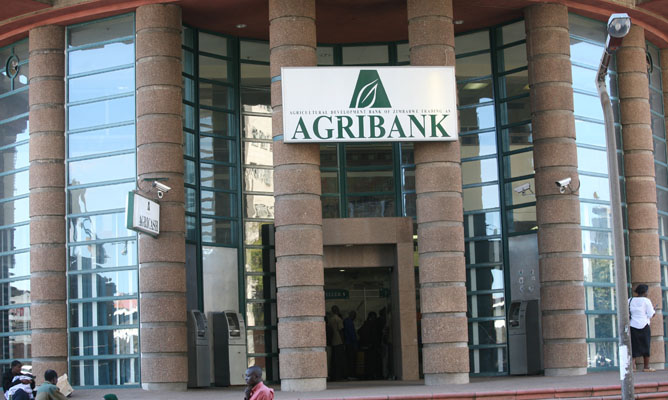
AGRIBANK says the capitalisation of the institution to top-tier level of $100 million and government’s clearance of arrears to multilateral partners will give the bank leverage in seeking lines of credit.
BY TATIRA ZWINOIRA
In 2014, the Reserve Bank of Zimbabwe announced a three-tier system in which a bank has to choose a suitable class as per recapitalisation capacity, with the top-tier category requiring minimum equity capital of $100m by 2020.
In Agribank’s first half results ending June 30 2016, the bank’s current tier 1 level of capital was $33,81m, an improvement of 8% from the same period last year.
Speaking to NewsDay on the sidelines of the presentation of their first half results on Tuesday, Agribank chief executive officer Somukosi Malaba said to be capitalised to the target level would allow the institution to borrow based on its balance sheet and not on any government guarantee.
“It is important to have a strong balance sheet so that you can borrow based on that and this is why I am emphasising to be capitalised to the level of $100m and not borrowing based on a government guarantee or something like it. If I am capitalised, then I can define what level of borrowing I can do based on our balance sheet,” he said.
Malaba said government’s clearance of its arrears to international financial institutions would help the bank to access lines of credit for on-lending to the agricultural sector. Zimbabwe plans to settle its
- Chamisa under fire over US$120K donation
- Mavhunga puts DeMbare into Chibuku quarterfinals
- Pension funds bet on Cabora Bassa oilfields
- Councils defy govt fire tender directive
Keep Reading
$1,8 billion arrears to the World Bank, International Monetary Fund and the African Development Bank by the end of the year.
“I think it will help us, even as a country, if we are able to clear arrears to our multilateral partners. If you look historically, we had the International Finance Corporation, which has always been strong in agriculture, even within the region here, and the African Development Bank. I am looking at trying to get medium to long-term funding for the agricultural sector, which is why these are key targets,” he said.
Malaba said the European Investment Bank had now started talking to private institutions in the country, but nothing had been disbursed.
He was confident that once the arrears were cleared, they could secure extra lines of credit. In the six months to June 30, Agribank posted a profit of $2,16m from a loss of $3,76m recorded over the same time frame last year.
The bank attributed the turnaround to its business growth strategies that included staff rationalisation, capital injection in 2015, access to the Aftrades facility and transfer of some non-performing loans to the Zimbabwe Asset Management Corporation.
Cost containment measures saw operating costs declining by 16% to $10,88m during the period under review from $13m in the comparable period last year.












